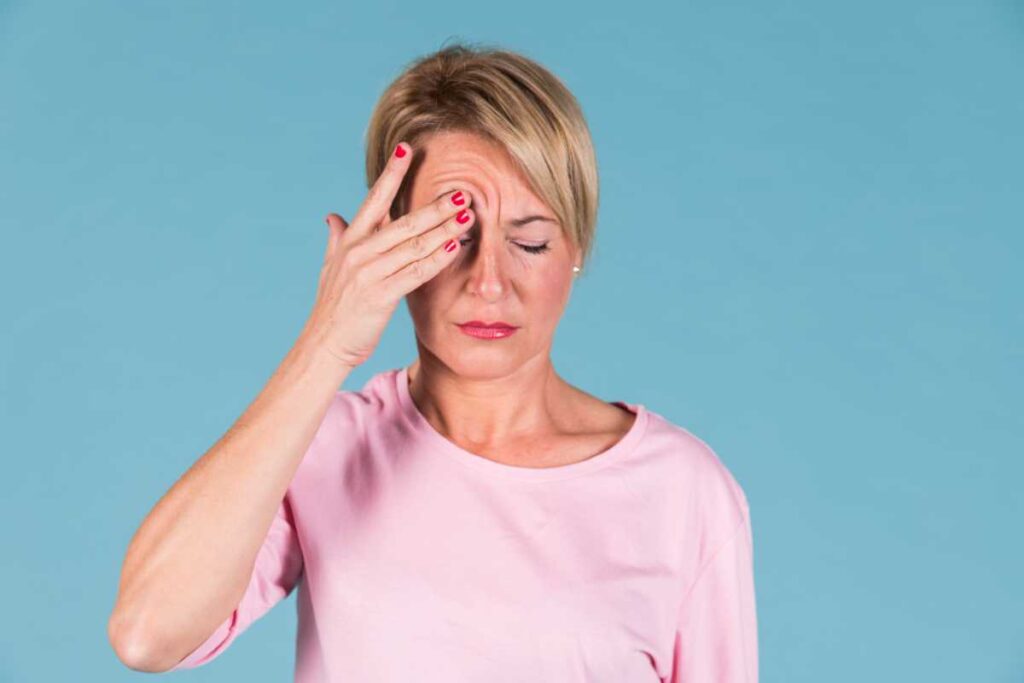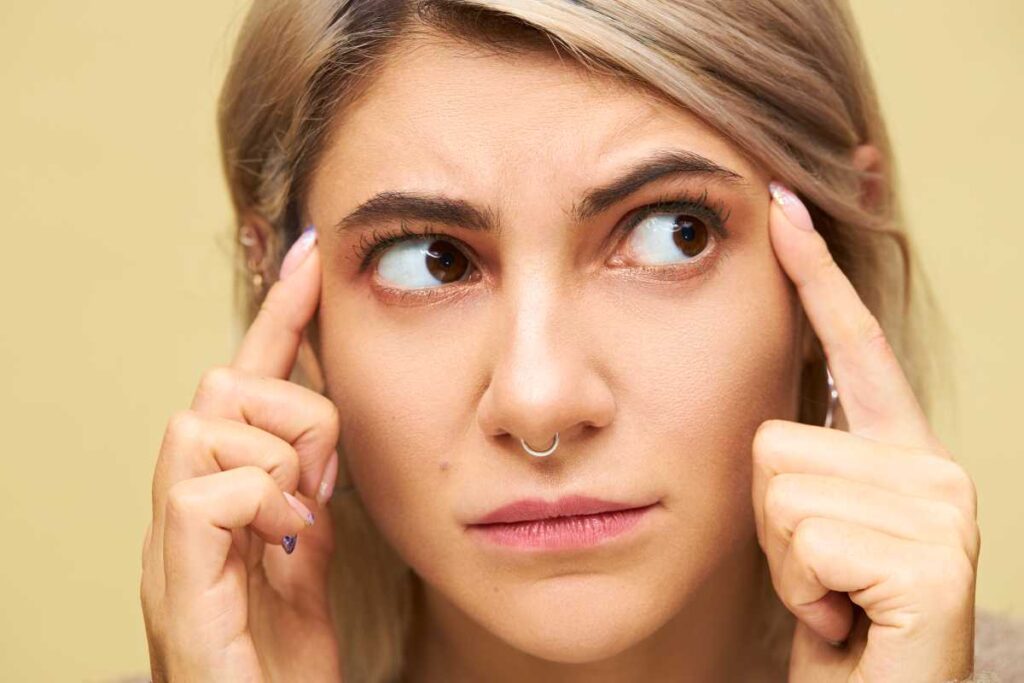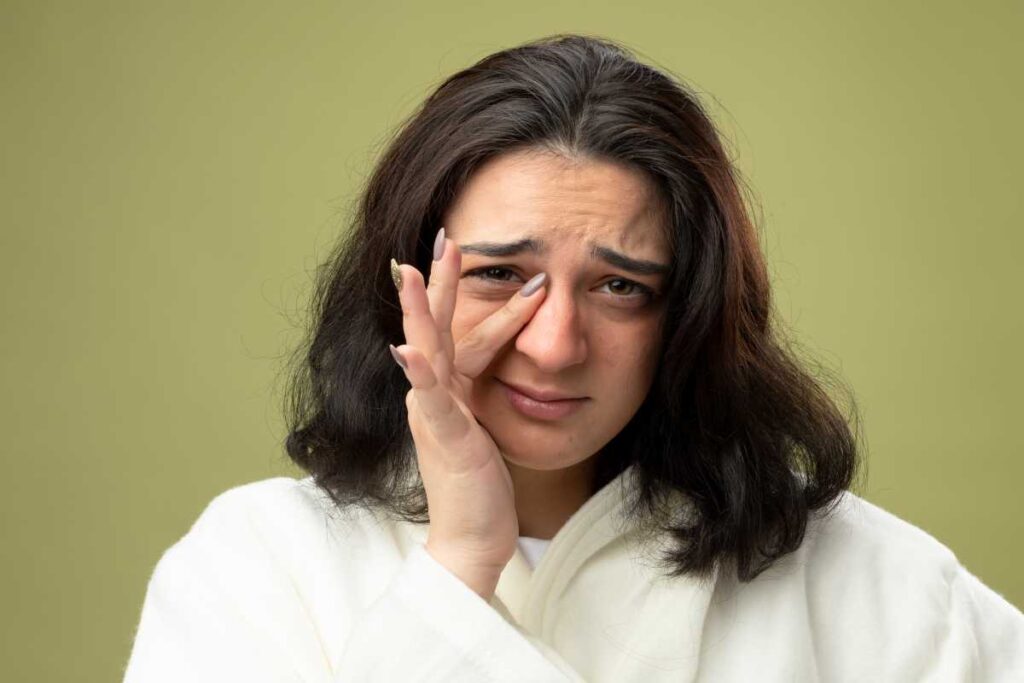Dry eyelids can be an uncomfortable and frustrating condition, often accompanied by irritation, redness, and flaking. Understanding the causes, recognizing the symptoms, and knowing how to treat dry eyelids can help individuals manage this issue effectively. In this blog, we will explore the common causes of dry eyelids, their symptoms, and various treatment options available.

What Causes Dry Eyelids?
Dry eyelids can result from various factors, including environmental influences, medical conditions, and lifestyle choices. Here are some common causes:
1. Environmental Factors
- Low Humidity: Dry air, especially during winter or in arid climates, can lead to moisture loss from the skin, resulting in dryness.
- Exposure to Sun: Prolonged sun exposure can damage the skin and lead to dryness and irritation.
- Air Conditioning and Heating: Artificial climate control can strip moisture from the skin, exacerbating dryness.
2. Medical Conditions
- Blepharitis: This inflammation of the eyelids can cause flaking and dryness due to clogged oil glands.
- Eczema: Individuals with eczema may experience dry, itchy eyelids as a symptom of their skin condition.
- Thyroid Disorders: Conditions like hypothyroidism can lead to dry skin, including the eyelids.
- Sjogren’s Syndrome: This autoimmune disorder affects moisture-producing glands, leading to dryness in various parts of the body, including the eyes and eyelids.
3. Lifestyle Choices
- Contact Lens Use: Prolonged use of contact lenses can lead to dryness and irritation of the eyelids and surrounding areas.
- Skin Care Products: Certain skincare products or makeup can irritate the eyelids, leading to dryness.
- Diet: A diet lacking in essential fatty acids can affect skin health, including the eyelids.
Symptoms of Dry Eyelids

Recognizing the symptoms of dry eyelids is crucial for seeking appropriate treatment. Common symptoms include:
- Itching or Irritation: A persistent urge to scratch or rub the eyelids due to discomfort.
- Redness: The eyelids may appear inflamed or red, indicating irritation.
- Flaking or Peeling Skin: Dry, flaky skin on the eyelids can be a sign of dehydration or irritation.
- Burning Sensation: A feeling of warmth or burning in the eyelids, which can be uncomfortable.
- Sensitivity to Light: Some individuals may experience increased sensitivity to light due to dryness and irritation.
Treatment Options for Dry Eyelids
Managing dry eyelids involves addressing the underlying causes and alleviating symptoms. Here are some effective treatment options:
1. Moisturization
- Eye Creams and Ointments: Applying hypoallergenic eye creams or ointments can help hydrate the skin on the eyelids. Look for products specifically formulated for sensitive skin.
- Natural Oils: Coconut oil or almond oil can provide hydration and protection for dry eyelids.
2. Avoid Irritants
- Limit Makeup Use: Avoid using heavy makeup or products that may irritate the eyelids. Opt for hypoallergenic and fragrance-free products.
- Change Skin Care Routine: Evaluate skincare products and discontinue any that cause irritation. Choose gentle cleansers and moisturizers.
3. Environmental Adjustments
- Use a Humidifier: Adding moisture to the air can help alleviate dryness, especially in winter or dry climates.
- Protect from the Sun: Wear sunglasses or a wide-brimmed hat when outdoors to shield the eyelids from sun exposure.
4. Dietary Changes
- Increase Omega-3 Fatty Acids: Consuming foods rich in omega-3s, such as fatty fish, flaxseeds, and walnuts, can promote skin health.
- Stay Hydrated: Drinking plenty of water helps maintain skin hydration, including the eyelids.
5. Medical Treatments
- Consult a Doctor: If dryness persists, seek advice from a healthcare professional. They may recommend medicated creams or ointments for underlying conditions like blepharitis or eczema.
- Allergy Testing: If allergies are suspected, consider allergy testing to identify potential triggers.
When to See a Doctor

If dry eyelids are accompanied by severe symptoms, such as persistent pain, swelling, or vision changes, it’s essential to seek medical attention. Additionally, if over-the-counter treatments do not provide relief, consult a healthcare professional for further evaluation and tailored treatment options.
Conclusion
Dry eyelids can significantly impact comfort and quality of life. By understanding the causes and recognizing the symptoms, individuals can take proactive steps to manage this condition effectively. With appropriate treatments, lifestyle adjustments, and professional guidance when necessary, it’s possible to alleviate dryness and restore healthy, comfortable eyelids.
